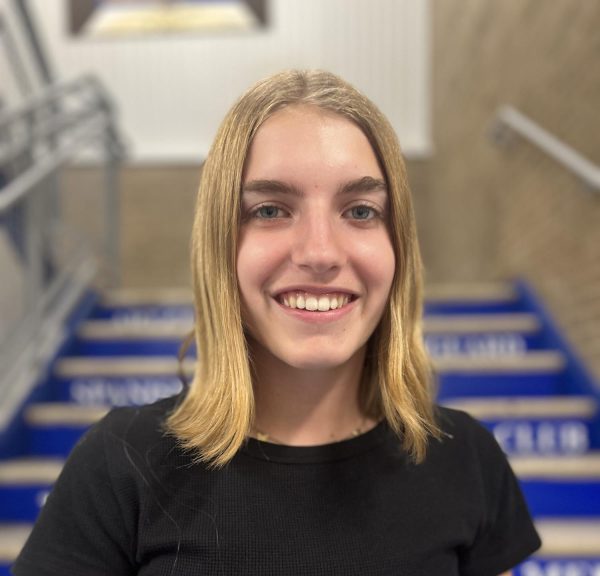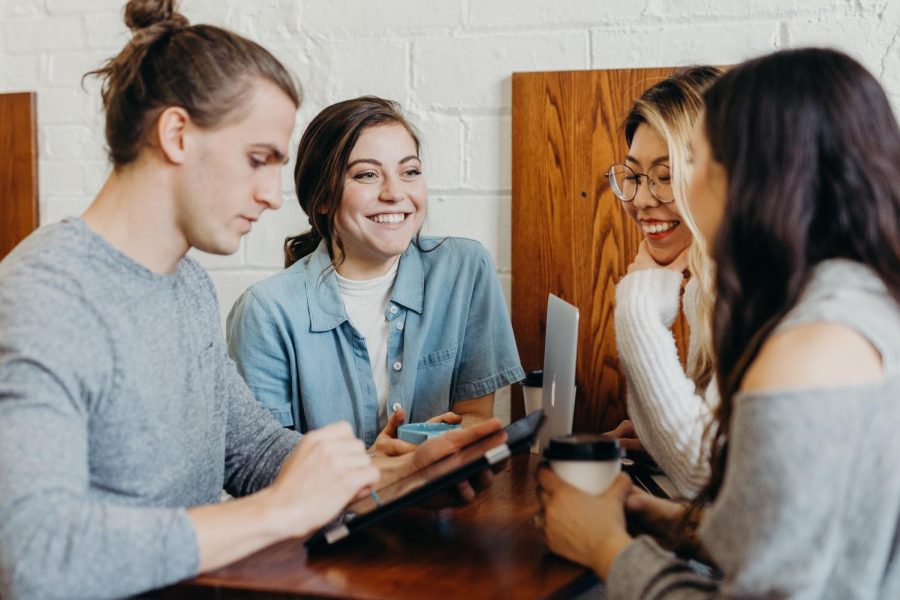Truth or clique bait: cliques at LZHS
Photo by and used with permission by Brooke Cagle
Cliques vary in looks. These kinds of cliques are common in LZ.
Mean Girls, Heathers, and Grease all showed the world some of the various cliques that existed in schools. But while those were over-the-top representations meant to draw in an audience, they got one thing right: cliques exist. Even here at LZHS.
“I think in movies, it’s very cliche. They kind of depict cliques like, ‘Oh, we’re the football players. We’re going to bully the band kids.’ That doesn’t really happen. Honestly, all the cliques kind of coexist with each other pretty well. I don’t think there’s ever a drama that’s kind of, ‘I’m going to give you a wedgie’ kind of drama,” Isabel Lin, freshman, said. “In movies, I feel like they don’t really acknowledge each other, but everyone [here] lives in a kind of harmony.”
Oxford’s Dictionary defines a clique as a group of people, with shared interests or other similar features, who spend time together and do not easily allow others to join them. And some, like Jacob Belovicz, senior, believe that the forming of cliques is inevitable.
“When you’re put into an environment where there’s such different people, like in school, I think a lot of people assimilate to people who are similar to them. A lot of that comes with clubs and activities that they grew up doing. Like theater, if you play an instrument, have similar upbringings, or the classes you take. Then we formed little social groups like that,” Belovicz said. “I think it’s part of human nature.”
Whether human nature or not, Madelyn Roscoe, freshman, says these cliques change and develop as students age.
“In elementary school there definitely were no cliques. Everybody was just friends with each other. And it was kind of great. In middle school [everyone] started to form groups and the concept of cliques. And in high school because you’re meeting a bunch of new people, cliques get dispersed, but there’s still a little. I feel everybody has their own little group,” Roscoe said.
According to kidshealth.org, cliques can be harmful to self esteem and do not provide a sense of inclusiveness.
“I think it can be really damaging on the psyches of a lot of students because there’s a stereotype of cliques being unapproachable,” Belovicz said.
However, Isabel Lin, freshman, claims that she has sidestepped the negative effects of cliques by being a “floater.”
“I kind of flow between clique and clique. I have friends in different kinds of groups. I just get along with a lot of [people],” Lin said. “I feel like everyone has the urge to be loved and to be popular and to fit into those kinds of well-known groups. And I think that that can really hurt someone’s self esteem. When in reality, I think you just need to find a couple of those friends that appreciate you for who you are.”

This is Tessa’s second year on staff and first year as Bear Facts' Junior Sports Editor. Tessa spends most of her free time playing tennis or soccer....

